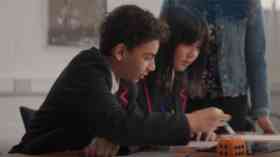Schooling young minds in the web’s darker side
 As recent news coverage on the topic of injunctions has revealed, Web 2.0 and social networking sites are challenging traditional notions of privacy and security in cyberspace.
As recent news coverage on the topic of injunctions has revealed, Web 2.0 and social networking sites are challenging traditional notions of privacy and security in cyberspace.
As the gap between virtual and reality becomes increasingly blurred by current and emerging technologies, the way we communicate and interact with one another is changing as well. But what are the implications for our privacy, and what impact will this have on our safety and security, children’s education and teachers?
Despite the fact that Facebook’s terms of service require users be at least 13, a recent survey1 shows that of the 20 million minors who actively use the site, 7.5 million are younger than 13 and more than five million are younger than 10.
Protecting privacy
Statistics like these are quite alarming. Social networking and the internet are here to stay and as more and more of our public services go online, we need to educate our children how to operate in this digital age in a safe way. Today, children are very digitally savvy, but being able to use technology, doesn’t automatically mean that they understand how to protect their privacy and personal information online and why it’s important.
In BCS’ publication ‘Virtual Shadows: Your Privacy in the Information Society’, Karen Lawrence Öqvist says: “Web 2.0 is an enabler, making it so easy for us to share our personal information with the rest of the world, willingly and knowingly.
“This fact alone has opened a Pandora’s Box when it comes to our children’s safety. Children like to show the world that they are here, what they do in their lives and what they think: they do not think twice about publishing photos and videos of themselves online and dating online is becoming the norm.”
Ryan Land is a teacher and e-safety coordinator at Don Valley School and Performing Arts College in Doncaster. He reinforces this message when he says: “The internet is an exciting and empowering tool. Learners today are living in a digital world, and as such are becoming complacent with digital technologies. It is vital that today’s learners fully understand the risks that such a powerful tool carries, and maximise the learning potential that the internet offers.”
E-safety certification
To help address the need for digital safety skills to be taught in schools, BCS, The Chartered Institute for IT, plans to launch BCS e-safety later this year. The Level 1 qualification that maps to parts of the National Curriculum for PSHCE – Personal Wellbeing, Citizenship, ICT and Every Child Matters, is currently being beta tested at a number of schools.
The aim is to help teachers to raise the issue of online safety with their students. The course covers the potential risks associated with being online, how to protect yourself and your personal information online, and how to behave responsibly and within the law whilst using the internet.
The qualification has been designed specifically for schools, to help them improve the standards of e-safety amongst staff and young people, and follows a 2010 report2 by Ofsted that recommends that schools should:
• audit the training needs of all staff and provide training to improve their knowledge of and expertise in the safe and appropriate use of new technologies
• work closely with all families to help them ensure that their children use new technologies safely and responsibly both at home and at school
• provide an age-related, comprehensive curriculum for e-safety which enables pupils to become safe and responsible users of new technologies.
Ofsted inspection
We know that from September 2011 Ofsted inspectors will be looking at several areas of student behaviour and safety, which includes online safety. While all schools currently offer e-safety to a greater or lesser extent, there is no standardised approach and this leaves Ofsted inspectors with a subjective assessment.
We hope that this new qualification will help schools demonstrate to Ofsted inspectors that by delivering a recognised qualification their school is focused on the behaviour and safety of their pupils.
The qualification is suitable for delivery in schools at key stage 3 and 4, and for adult learners who work with or care for children. It covers four main safety areas: the benefits and risks of using the internet, how to report and respond to e-safety issues, how to protect yourself and your computer online, and the legal issues of downloading from the internet.
A changing world
The qualification has been welcomed by the Family Online Safety Institute (FOSI) which works to make the online world safer for kids and their families. They do this by identifying and promoting best practices, tools and methods in the field of online safety that also respect free expression.
Dave Miles, EMEA director of FOSI, says: “There’s no doubt that the world has changed dramatically in the 20 years since the web was introduced. This has produced opportunities and challenges for all of us and none greater than those educating children.
“We’re all connected and children naturally want to be part of this world. Our responsibility as adults, educators, parents, and businesses is to enable them not only to be digital citizens, but to do so with an understanding of both the benefits and potential pitfalls of our web 2.0 world.
“This also means that we need to support those who work with children, both educators and parents, and help them understand the steps they can take to support children in this area.”
Notes
1. Survey published in the June edition of Consumer Reports.
2. The safe use of technologies, by Ofsted - www.ofsted.gov.uk/publications/090231
For more information
www.bcs.org
Latest News
09/01/2026 - 10:13
The measure, added to the Children’s Wellbeing and Schools Bill, delivers on the commitment made in the government’s manifesto to bring multi academy trusts into the inspection system.
08/01/2026 - 10:30
The government is launching a new app allowing students to view their GCSE results on their phones for the first time from this summer.
08/01/2026 - 09:45
Education Business LIVE has announced that Professor Samantha Twiselton OBE of Sheffield Hallam University will speak at the event in March 2026, delivering two thought-provoking sessions focused on initial teacher training and SEND provision.
07/01/2026 - 10:10
Solve for Tomorrow is a free, curriculum-linked programme which is mapped to Gatsby Benchmarks 4, 5, and 6, helping teachers embed careers education without adding to workload.
06/01/2026 - 10:24
London's universal free school meals programme has not led to improvements in pupil attainment during its first year, but has eased financial pressure and reduced stress for families.







